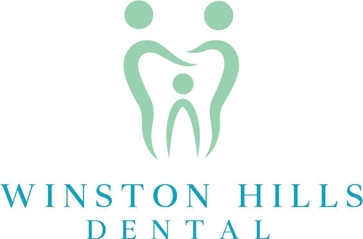Cosmetic dentistry enhances dental aesthetics and boosts self-confidence through various innovative treatments. The appearance of one’s smile can significantly impact one’s self-esteem, making dental makeover options such as teeth bonding, veneers, and crowns popular choices for those seeking to improve their smile and overall appearance.
Teeth bonding is a dental treatment where a tooth-coloured resin material is applied to the teeth and hardened with a special light, effectively bonding the material to the tooth to improve its appearance. Veneers are thin shells made of porcelain or composite resin that are custom-made to cover the front surface of the teeth, enhancing their shape and colour. Crowns, also known as dental caps, are tooth-shaped covers that encase the entire tooth to restore its shape, size, and strength.
What is Teeth Bonding?
Teeth bonding, also known as dental bonding, is a cosmetic dental procedure that involves the application of a tooth-coloured resin material to improve the appearance of teeth. A dentist commonly performs this procedure to address various dental imperfections.
- Composite Resin: Dental bonding utilises a composite resin material that is carefully applied and sculpted onto the teeth to enhance their aesthetic appeal.
- Fixing Chipped Teeth: Bonding is an effective solution for repairing chipped or cracked teeth and restoring the tooth’s function and appearance.
- Treatment for Tooth Decay: Dentists may use dental bonding to fill cavities caused by tooth decay, providing a natural-looking restoration.
- Enamel Imperfections: Dental bonding can also cover up enamel imperfections such as discolouration or gaps between teeth, improving the overall smile.
Dental bonding is a versatile and minimally invasive procedure that can address various cosmetic concerns, offering patients an effective way to achieve a more confident smile.
Pros and Cons of Teeth Bonding
Utilising a tooth-coloured composite resin material, dental bonding offers a cost-effective and minimally invasive solution for addressing various dental imperfections while providing durable and aesthetically pleasing outcomes. The durability of teeth bonding can last several years with proper care, making it a long-lasting option for minor dental issues.
In terms of cost-effectiveness, teeth bonding tends to be more affordable than other dental treatments like veneers or crowns, making it an attractive choice for those on a budget. Additionally, the aesthetic outcome of bonding is impressive, as the composite resin can be customised to match the natural colour of your teeth, providing a seamless and natural look.
Bonding requires minimal tooth preparation, making it a conservative option that preserves more of your natural tooth structure. Maintenance for bonded teeth is relatively easy, requiring regular oral hygiene practices to ensure longevity. Overall, teeth bonding is a practical and effective solution for enhancing your smile.
What are Dental Veneers?
Dental veneers are thin shells made of porcelain or composite resin that are custom-designed to cover the front surface of teeth for cosmetic enhancement. These veneers are a popular choice for improving the appearance of teeth and achieving a beautiful smile. Here are some key points about dental veneers:
- Veneers can be made from either porcelain or composite materials, with porcelain being more stain-resistant and reflecting light similarly to natural teeth.
- The application of veneers typically involves multiple steps, including consultation, tooth preparation, impression-taking, and final bonding.
- Veneers can help with smile design by correcting issues such as discolouration, gaps, misalignment, and irregularly shaped teeth.
- Properly applied veneers can promote gum health by providing a smooth surface that is easy to clean and protects the underlying tooth enamel from damage.
Pros and Cons of Veneers
When considering the benefits and drawbacks of veneers, it is essential to weigh factors such as longevity, cost implications, and the extent of tooth preparation involved in the process.
Veneers are known for their durability, often lasting between 10 and 15 years with proper care. While they may have a higher upfront cost compared to other treatments, their longevity can make them a cost-effective choice in the long run.
However, one of the main disadvantages of veneers is the irreversible enamel removal required during the preparation process, which may impact the natural tooth structure. Additionally, adjustments to the patient’s bite may be necessary to accommodate the veneers, and the translucency of veneers may vary, affecting the final aesthetic result.
Understanding veneers’ advantages and potential drawbacks is crucial in making an informed decision about this cosmetic dental treatment.
What are Dental Crowns?
Crafted from durable materials such as ceramic or porcelain fused to metal, dental crowns are protective caps placed over a damaged or weakened tooth to enhance its strength and restore functionality. These crowns provide full coverage to the tooth, offering protection and support in various situations. Here is an explanation of dental crowns:
- Materials: Dental crowns are commonly made from ceramic or porcelain fused to metal, ensuring durability and a natural appearance.
- Tooth Strength: Crowns are recommended to strengthen weakened teeth, especially after procedures like root canals or large fillings that compromise the tooth’s structural integrity.
- Types: Different types of dental crowns are available, each with unique benefits and suitable applications.
- Recommended Use: Dentists often recommend dental crowns to restore the functionality and aesthetics of a damaged tooth efficiently.
Dental crowns play a crucial role in maintaining oral health by protecting and strengthening weakened teeth, enhancing the overall quality of a smile.
Pros and Cons of Crowns
Enhancing the strength and functionality of weakened teeth, dental crowns offer a durable solution with both benefits and limitations. Dental crowns are known for their durability, providing long-lasting protection for damaged teeth. Despite their initial higher cost than other treatments like fillings, the longevity of crowns can make them a cost-effective option in the long run.
Getting a crown involves reshaping the tooth structure to ensure a proper fit, which can sometimes lead to removing more natural tooth material than other treatments. However, technological advancements have allowed for more conservative approaches, minimising the need for extensive tooth reshaping. Crown fitting is crucial for ensuring proper functionality and aesthetic integration with the surrounding teeth.
Key Takeaways
To achieve your ideal smile, it is crucial to weigh the benefits of teeth bonding, veneers, and crowns. Whether you seek versatility, durability, or strength, consulting with a dentist is key to determining the best treatment for your unique requirements.
If you’re searching for expert guidance and personalised dental care, visit Winston Hills Dental at Junction Road, Winston Hills, NSW 2153 today. Start your journey towards a confident and radiant smile!

